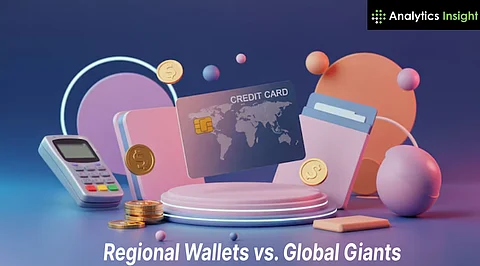

Regional wallets are rapidly disrupting the dominance of global digital payment platforms.
Local solutions often outperform global giants by offering tailored services and deeper market understanding.
The future of digital payments may be decentralized, with regional players leading innovation.
Digital payments are now super common worldwide. You see them everywhere, from tiny shops in the country to fancy stores in big cities. Paying with your phone or card is stealing cash's spotlight. Big names like PayPal, Apple Pay, and Google Pay have been on top for ages, but things are shifting.
Now, local digital wallets are getting popular, giving those giants a run for their money. It's not just about the tech; it's about trust and getting what people need nearby.
Over the last few years, regional digital wallets have blown up, especially in places that are still growing economically. Look at PhonePe and Paytm in India, M-Pesa in Kenya, and GCash in the Philippines. They show that understanding local needs can lead to success. These wallets were built for their specific cultures, financial situations, and communities.
Because of that, people like them way more than some of the international apps.
Also Read: OceanaGold Prices $106 Million IPO for Philippine Venture
A lot of these wallets started by fixing everyday issues, like not being able to get to a regular bank. In places where many don't have bank accounts, these phone wallets became the go-to for sending and receiving cash, settling bills, or buying stuff online. Right away, that made a huge difference.
Also Read: Enhancing Financial Services with Predictive Analytics and Integrated Banking Systems
People often trust regional wallets more than the huge global ones. It's because they feel familiar, work with local companies, and offer help in the local language. Unlike the big apps, these regional services usually fit right in with how local shops do business. Like, a lot of them give you cashback on groceries or let you pay with QR codes that even a basic phone can scan.
These little things might not seem like a big deal, but they matter a lot when you use them every day.
They speed up payments and make them easier and better. But global platforms can struggle with local payment rules and how things are done.
Even though they have the best tech and tons of cash, the big global payment companies often face trouble when they try to break into new areas. Things like rules and regulations, cultural differences, and tough local competition can block them. Some countries have even made laws that favor their own digital payment options over foreign ones, because they're worried about data safety and keeping control of their economy.
Also, global companies tend to sell the same product everywhere. That might work in some places, but it often flops in regions with different banking rules or what customers like. If they don't adapt to the area, these global tools can feel awkward or confusing for new users.
You know, the best ideas aren't just coming out of Silicon Valley these days. A lot of the really interesting stuff in digital payments is coming from small startups that actually know what their users want. These platforms are adding cool features such as offline payments, voice commands for the local language, and even ways to pay when you're broke.
These ideas come from actually talking to users and knowing what's happening on the ground. This kind of practical thinking helps regional wallets fix problems in ways that global services might miss. You end up with something that feels more personal and easy to use.
The battle between local and global digital wallets is getting intense. Some local wallets are expanding and aiming for worldwide reach. Meanwhile, big global players are teaming up with local partners, adding region-specific features, and hiring local talent.
It's also possible that global and regional players could team up. In some cases, working together might combine the global reach with local smarts.
At the same time, governments and lawmakers are really impacting how digital payments are going to play out.
Policies promoting fair play, protecting user info, and getting more folks into finance will shape what's next.
Digital payments are changing fast. Local digital wallets aren't just bit players; they're giving global giants a run for their money. By focusing on local needs, culture, and new thinking, they're shaking things up. As digital payments grow, local options could hold their own against big tech.
